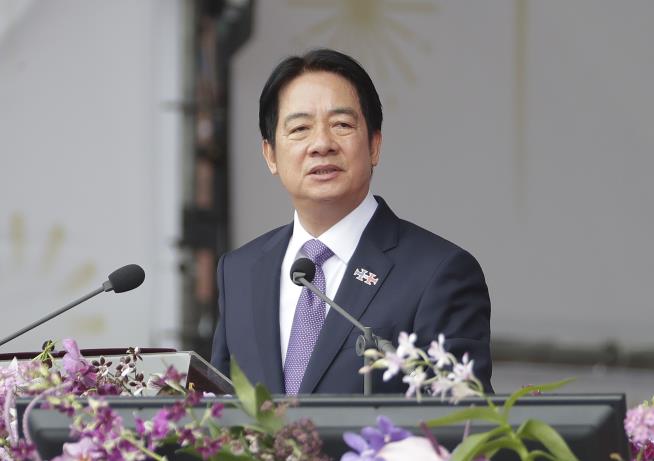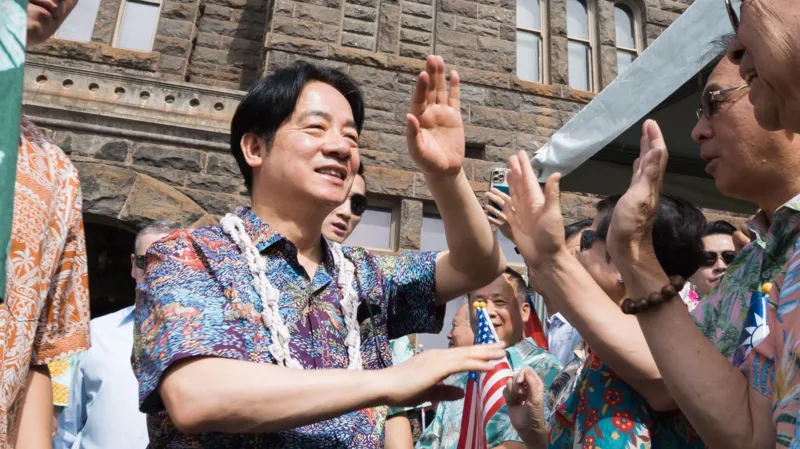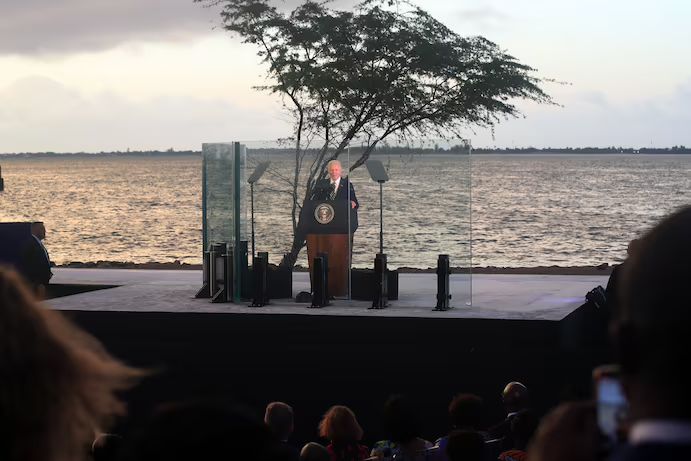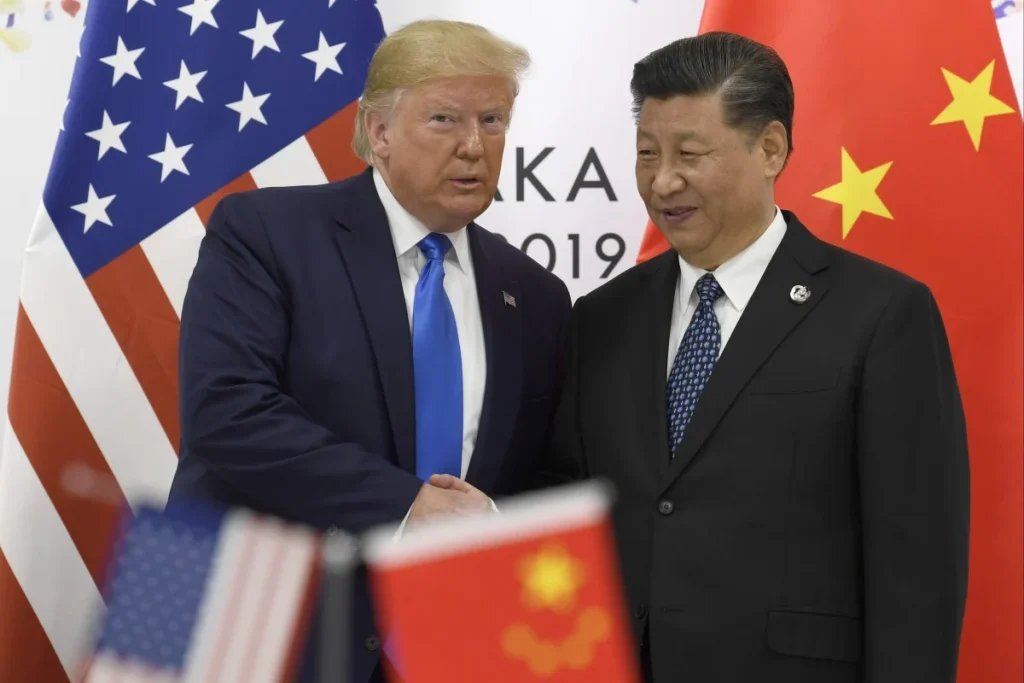Sorry, China: Taiwan President Is US-Bound

Taiwan’s President, Tsai Ing-wen, is making headlines as she embarks on a diplomatic visit to the United States, sparking a strong reaction from China. Tsai’s visit, which is seen as a significant political gesture, comes amid heightened tensions between Taiwan and China. The trip has raised concerns over the potential for further escalation in cross-strait relations, with China strongly opposing any form of official diplomatic engagement between Taiwan and foreign countries, especially the United States.
Tsai’s US Visit: Background and Significance
President Tsai Ing-wen’s planned visit to the United States is a carefully timed diplomatic move. Taiwan’s president is expected to make a stop in the U.S. as part of a transit on her way to Central America. This visit, although not an official state visit, has been closely watched because of the sensitive nature of Taiwan-China relations. Tsai will be meeting with various political leaders, officials, and think tanks during her stay, and her time in the U.S. is expected to focus on strengthening ties between Taiwan and the U.S., as well as reinforcing Taiwan’s place in the international community.
The U.S. has long been Taiwan’s primary international partner and has continued to provide military and economic support despite not officially recognizing Taiwan as a sovereign state. This diplomatic “gray area” complicates the situation, as Beijing sees any engagement with Taiwan as a direct challenge to its sovereignty, while Washington has maintained a policy of “strategic ambiguity,” carefully balancing its support for Taiwan with its relationship with China.
Tsai’s visit comes at a time when tensions between the U.S. and China are already high, particularly with regard to issues such as trade, security, and the South China Sea. Beijing has repeatedly warned that any increase in U.S. support for Taiwan would lead to severe consequences. This context makes Tsai’s visit especially sensitive, as it could provoke further actions from Beijing.
China’s Opposition and Growing Tensions
China views Taiwan as a breakaway province and has consistently rejected any international recognition of Taiwan’s sovereignty. Beijing has been vocal in its disapproval of Tsai’s visit to the United States, framing it as a provocation that undermines China’s territorial integrity. The Chinese government has warned the U.S. that it must not engage with Taiwan in ways that could be perceived as official diplomatic recognition, as this would cross a “red line” in Sino-U.S. relations.
In anticipation of the visit, Chinese officials have made it clear that they will not tolerate what they view as foreign interference in Taiwan’s affairs. Over the years, China has used economic, diplomatic, and even military pressure to isolate Taiwan from the international community, including imposing trade restrictions and ramping up military activities near the Taiwan Strait. The growing militarization of the region, with frequent Chinese military drills and the stationing of military assets along the strait, has raised alarms about the potential for conflict.
China’s response to Tsai’s U.S. trip has been predictable, but it adds to an already tense geopolitical situation. Many analysts fear that the continued pressure from Beijing will only strengthen Taiwan’s resolve to assert its sovereignty and deepen its relations with the U.S. and other democratic nations. Meanwhile, Beijing’s hardline stance may fuel concerns about stability in the region, particularly regarding Taiwan’s security.
U.S. and Taiwan Relations: Strategic Importance
The United States and Taiwan have long maintained unofficial relations, but the importance of this connection has increased in recent years, particularly amid growing concerns over China’s rising power. The U.S. continues to be Taiwan’s most important military and political ally, providing arms sales and diplomatic support. Washington’s commitment to Taiwan’s defense has been made clear in the Taiwan Relations Act, which governs U.S.-Taiwan relations, even though the U.S. does not officially recognize Taiwan as an independent state.
For the United States, Taiwan is a critical partner in the Indo-Pacific region, and the U.S. has emphasized its support for Taiwan’s security and democracy. Tsai’s visit to the U.S. provides an opportunity to strengthen the partnership further, especially as tensions with China show no signs of abating. The U.S. also sees Taiwan as a key player in maintaining the balance of power in the Indo-Pacific, particularly as China seeks to assert its dominance in the region.
The visit also provides an opportunity for the U.S. to reinforce its stance on supporting democratic values and ensuring that Taiwan can continue to participate in the international community. Taiwan’s success as a thriving democracy, despite the threats from China, serves as a symbol of resilience for the U.S. and its allies, who view Taiwan as a beacon of democratic ideals in an increasingly authoritarian world.
Impact on Cross-Strait Relations
Tsai’s trip to the U.S. is likely to have significant repercussions for cross-strait relations. China’s opposition to the visit has already led to calls for further sanctions and military posturing. While Tsai’s visit does not signify a formal change in the U.S.’s “One China” policy, it does send a strong message of support for Taiwan’s democratic system and its right to determine its future.
The visit is also likely to embolden pro-Taiwan factions within the country, who are pushing for a more assertive stance in the face of growing Chinese pressure. While the government of Taiwan has continued to call for peace and dialogue with China, it has also worked to build stronger international partnerships, particularly with the United States and other democratic nations.
China’s reaction to Tsai’s visit may also prompt a reassessment of its approach to Taiwan. While Beijing has long relied on economic and military pressure to maintain its claim over Taiwan, the continued international support for Taiwan’s sovereignty could force China to reconsider its strategy. The ongoing tensions between China and Taiwan are unlikely to ease anytime soon, and the U.S. remains a central player in the broader geopolitical contest over Taiwan’s future.
As Taiwan President Tsai Ing-wen embarks on her trip to the United States, the geopolitical implications are vast. The visit highlights the growing ties between the U.S. and Taiwan and underscores the strategic importance of Taiwan in the broader contest for influence in the Indo-Pacific region. For China, Tsai’s visit is a provocative challenge to its claims over Taiwan, and Beijing’s opposition to any diplomatic engagement between Taiwan and the U.S. signals the increasing volatility of cross-strait relations.
The outcome of this visit could shape the trajectory of Taiwan’s foreign policy, particularly with its ongoing struggle for international recognition and security. As tensions mount, the U.S. will continue to play a crucial role in supporting Taiwan’s democratic values while managing its complex relationship with China. The world will be watching closely to see how the situation develops, as the consequences of Tsai’s U.S. visit could reverberate far beyond the Taiwan Strait.






